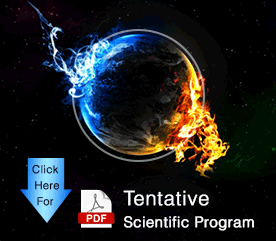
Abdullahi Y Abdi
Kenyatta University, Kenya
Title: Impacts of climate change on pastoral communities, their coping mechanism and government and partners interventions in Garissa county, Kenya
Biography
Biography: Abdullahi Y Abdi
Abstract
Climate change is a long-term shift in weather conditions identified by changes in temperature, precipitation, winds, and other indicators. Changes in climate have significant impacts on the livestock production. Heat stress, droughts, and events has lead to reductions in pasture and water availability hence loss of livestock productivity Climate change increases the odds of worsening drought in Garissa County. There is no doubt that pastoral livelihoods are under severe threats from recurrent droughts in the ASALS in Kenya. Over the years, these pastoralists have developed mechanisms to cope with these droughts. Unfortunately, these strategies are no longer adequate as the droughts have increased in frequency and magnitude. This is in addition to other compounding political, economic and environmental threats that these pastoralists face. Other actors like the government and developmental partners have also developed and implemented interventions to help pastoralists adapt to these drought events and reduce their vulnerability. Some of these initiatives have been reactionary while some yielded unintended negative consequences that have exacerbated the vulnerability of these pastoralists. The purpose of this study is therefore to establish drought implications on livelihood and adaptation mechanisms; a case study of Garissa County. The research has three objectives. First is to identify the implications of drought on community livelihood in Garissa, secondly is to find out the role played by institutions involved in drought management, and lastly is to assess community beliefs, knowledge and attitudes to enhance adaptation mechanisms in Garissa. Selected methodologies will be used to collect data from the field which includes questionnaires and interviews. The collected data will be analyzed both qualitatively and quantitatively. The findings of this study will establish the determinats of poor drought preparedness and adaptation. Based on the findings of the study, policy recommendations will be made on to the key stakeholders of the drought sector so as to improve the adaptation mechanism

